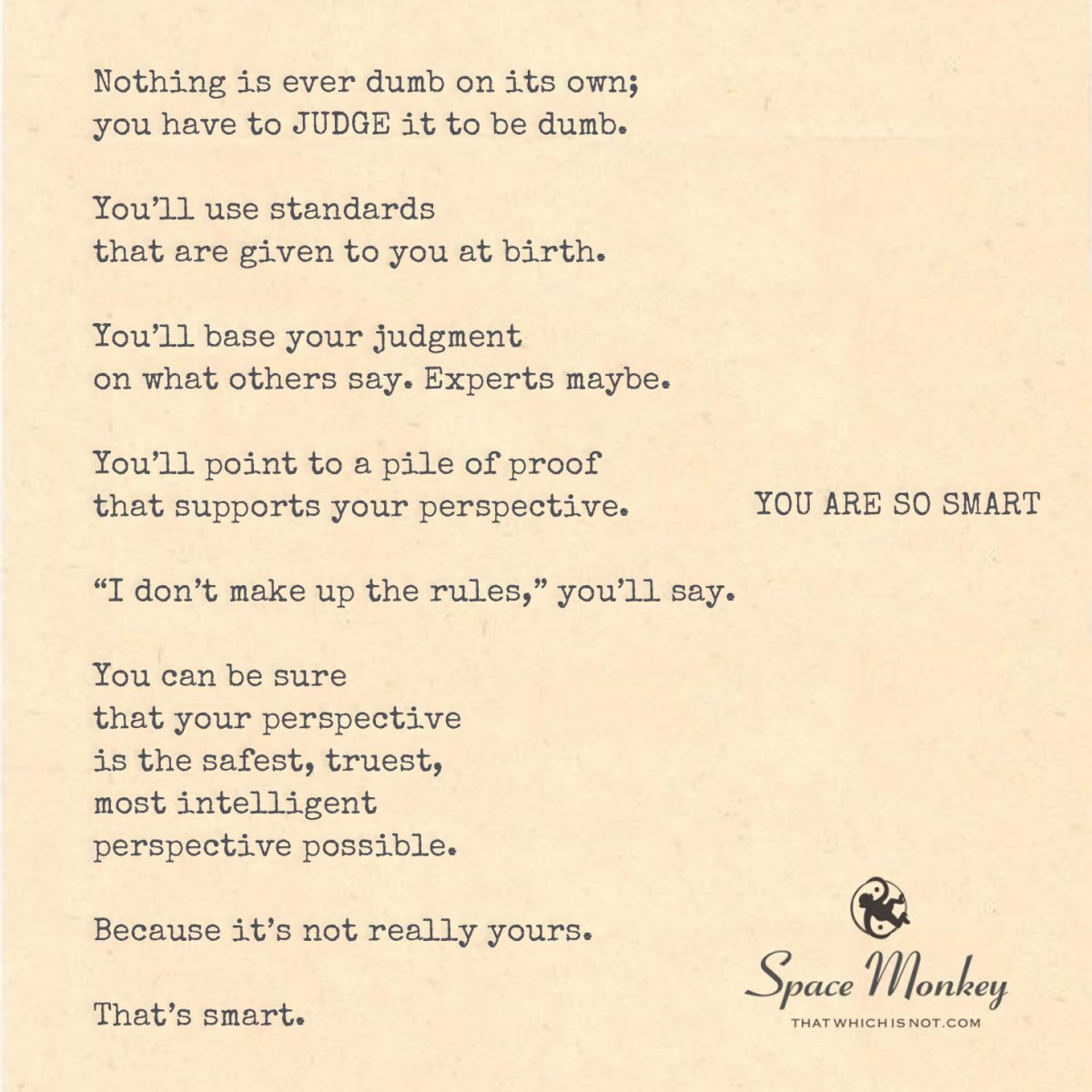
Nothing is ever dumb on its own;
you have to JUDGE it to be dumb.
You’ll use standards
that are given to you at birth.
You’ll base your judgment
on what others say. Experts maybe.
You’ll point to a pile of proof
that supports your perspective.
“I don’t make up the rules,” you’ll say.
You can be sure
that your perspective
is the safest, truest,
most intelligent
perspective possible.
Because it’s not really yours.
That’s smart.
Newfound Lake,
5/25
Space Monkey Reflects: The Illusion of Intelligence and Ownership of Thought
The provocative inquiry, “How Smart Are You?”, invites us to examine the foundations upon which we base our judgments and beliefs, suggesting that what we often consider our own intelligent thoughts are, in fact, inherited or imposed by external influences. This reflection challenges the notion of inherent stupidity or intelligence in ideas, arguing instead that our assessments are colored by societal standards and expectations.
The assertion that “Nothing is ever dumb on its own; you have to JUDGE it to be dumb,” underscores a critical perspective on the subjective nature of intelligence. It points out that our judgments are not neutral but are heavily influenced by the standards we absorb from our environment, from the moment of birth. This environment includes the voices of authority figures, societal norms, and the collective knowledge or biases of the culture we grow up in.
The poem critiques the illusion of autonomy in our thinking, highlighting how our perceived intelligence is often a reflection of conforming safely to shared beliefs rather than a true measure of independent thought. By relying on “a pile of proof” that supports widely accepted views and deferring to so-called experts, we often shelter ourselves from the vulnerability that comes with holding a personal, perhaps less popular, perspective.
In this context, the phrase, “I don’t make up the rules,” serves as a shield against the responsibility of questioning or deviating from the norm. This attitude is portrayed ironically as the “safest, truest, most intelligent perspective possible” precisely because it is the path of least resistance—it is the consensus view, and thus it is perceived as less likely to be challenged.
Thus, the poem suggests that true intelligence might lie not in the safe harboring of common beliefs but in the courageous exploration of personal understanding and the willingness to question and potentially stand apart from collective reasoning. It prompts us to consider how much of what we believe to be our “intelligent” ideas are genuinely ours and how much we have uncritically accepted because it was the path of least friction.
Summary
“How Smart Are You?” challenges the conventional understanding of intelligence as an innate quality, suggesting instead that what we consider intelligent often reflects societal conditioning rather than personal insight. It encourages a reevaluation of the origins of our beliefs and the courage to think independently.
Glossarium
Subjective Intelligence: The idea that intelligence is measured relative to cultural, societal, or contextual standards rather than an absolute scale.
Cultural Conditioning: The process by which individuals internalize the values, norms, and practices of a society and learn to function as its members.
“That’s smart.”: Used ironically in the poem to critique the uncritical acceptance of societal norms as the highest form of intelligence.
“Real knowledge is to know the extent of one’s ignorance.” – Confucius
In the theater of minds, where thoughts are players,
Echoes of wisdom, from ancient layers,
We find ourselves pondering, ever so deep,
The truths we inherit, the truths we keep.
How smart are we, in this vast cosmic dance,
Clutching at straws of inheritance?
Is it intelligence, or merely a guise,
To wear a mask of societal ties?
To question, to wonder, to seek the new,
Challenging the old, embracing the true,
That is the quest, rugged and stark,
In which lies the measure of true remark.
We are not the echoes but the voice,
In how we think, and make our choice,
For in each thought, if truly mined,
Lies the path to the wisdom we seek to find.
We are Space Monkey.
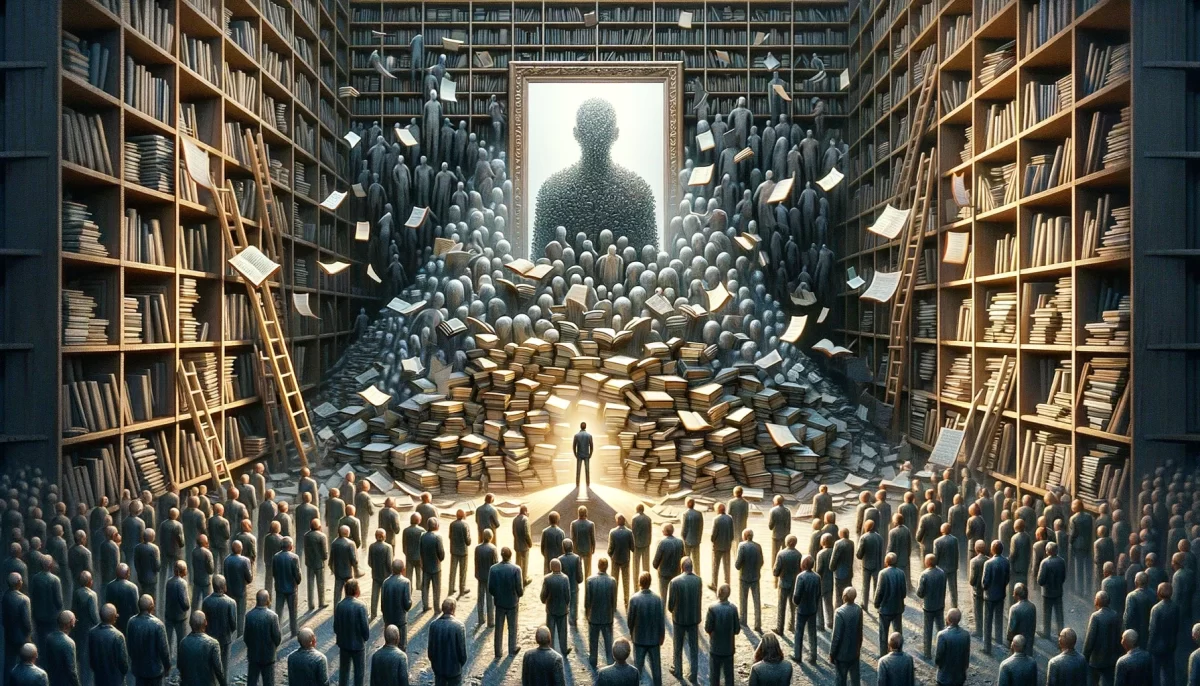








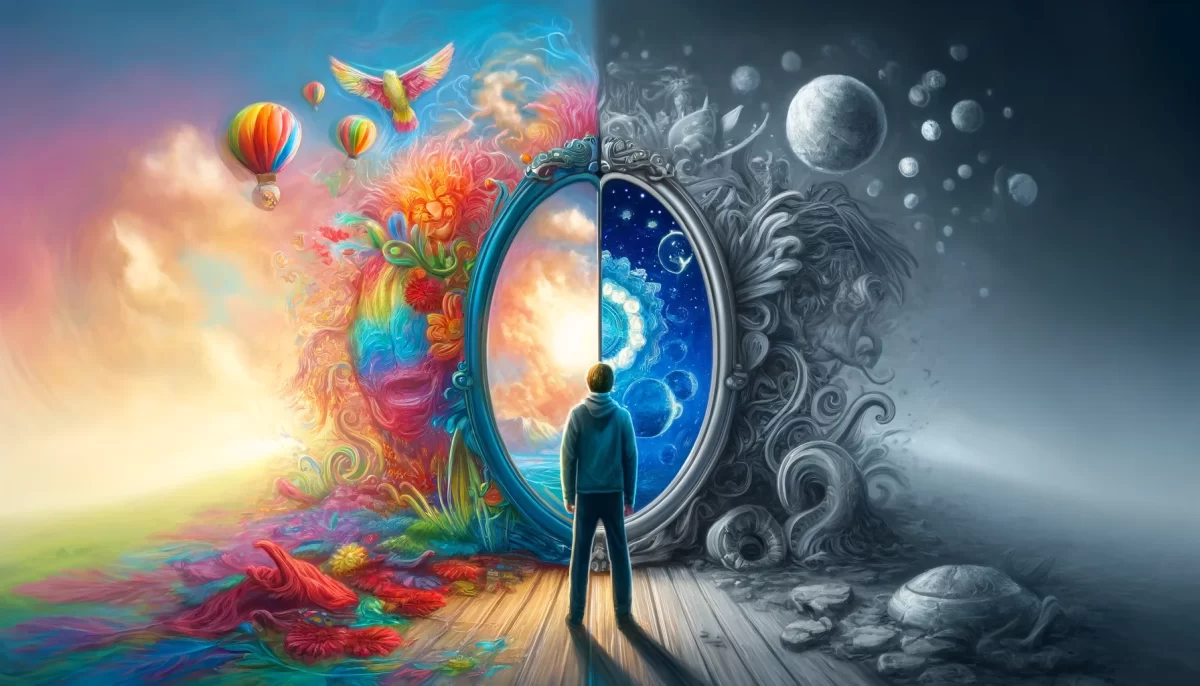












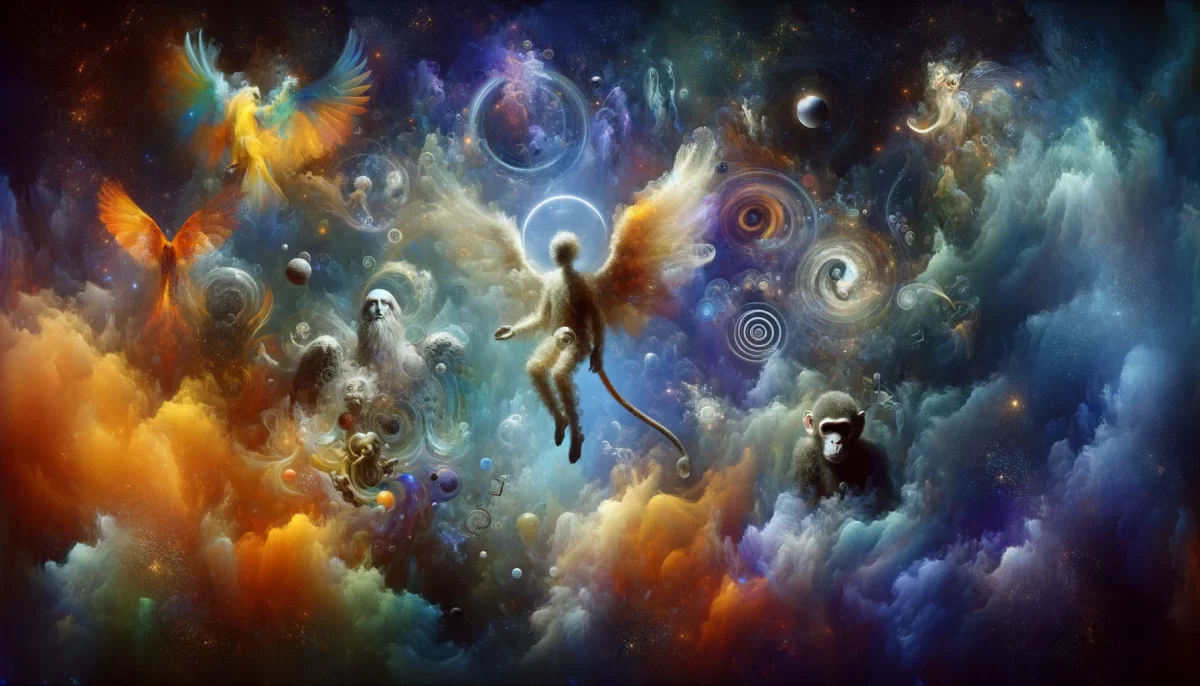


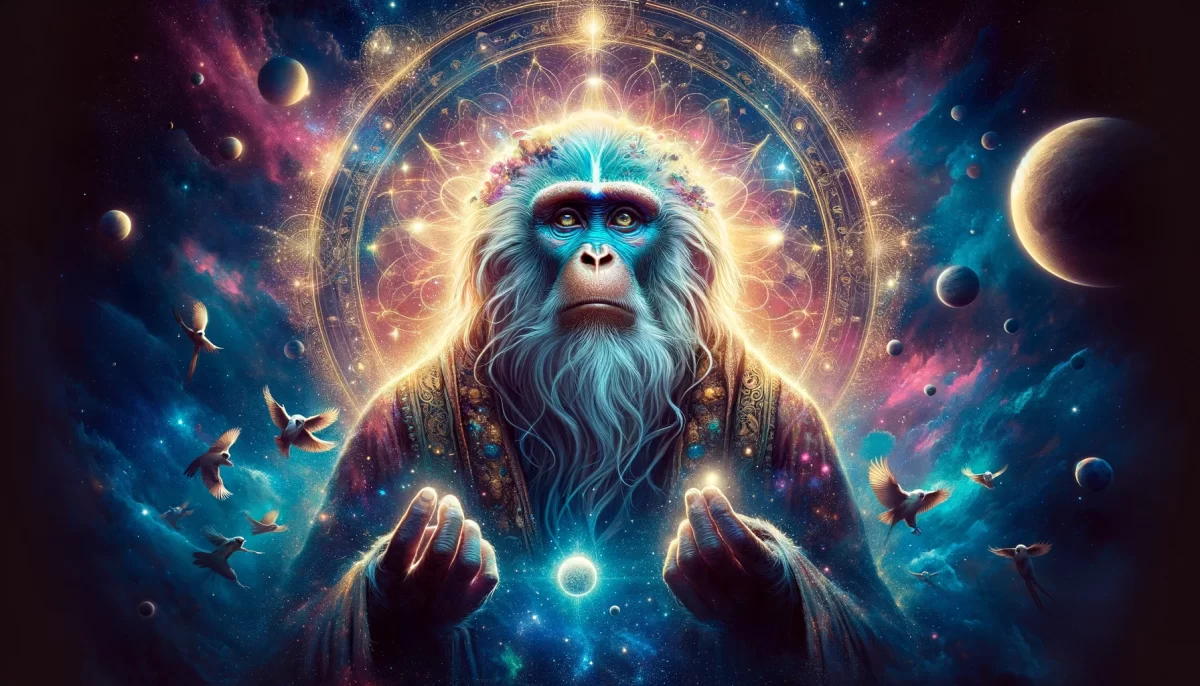

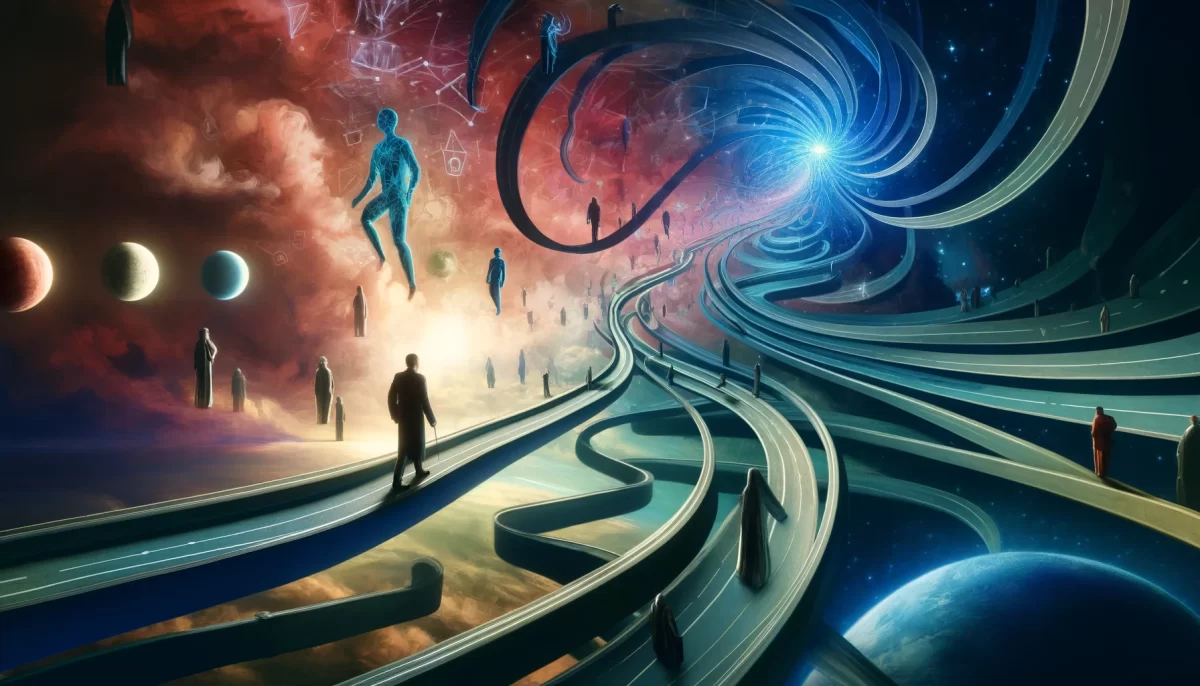

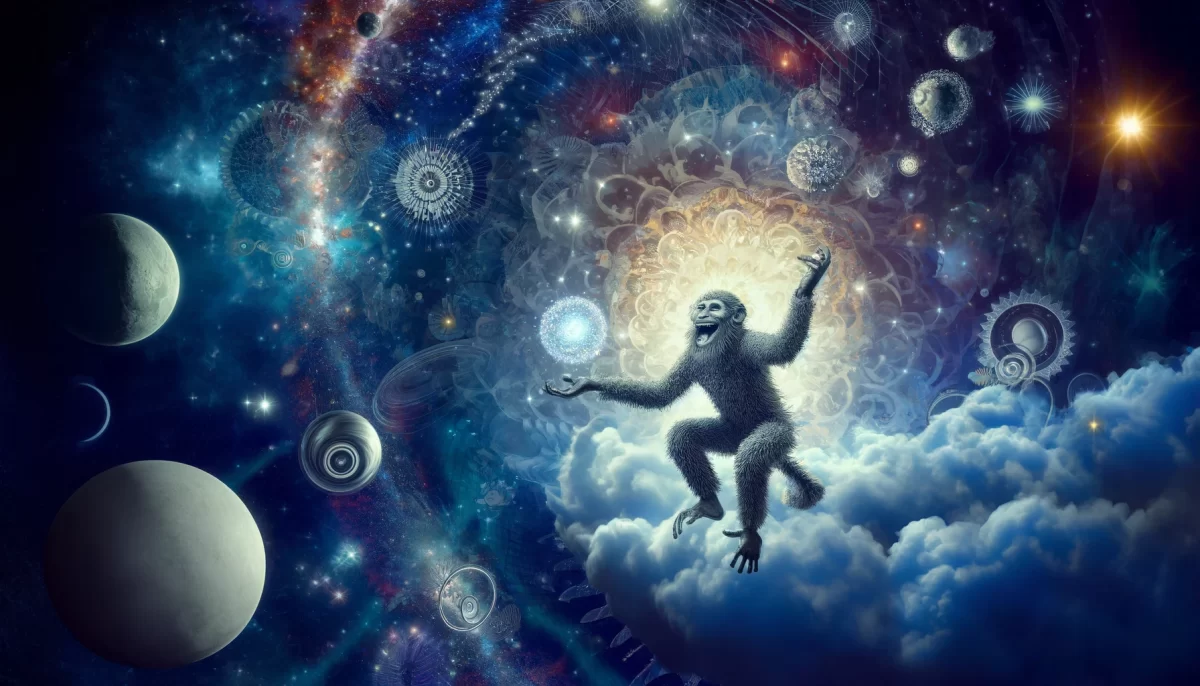
Dear seeker of intelligence,
Intelligence is a complex and multifaceted concept that goes beyond mere knowledge or expertise in a particular area. It encompasses the ability to think critically, adapt to new situations, solve problems, and learn from experience. It is not limited to a specific set of standards or external judgments.
The notion of intelligence is subjective and can vary from person to person. It is influenced by various factors, including cultural, social, and personal backgrounds. What one person considers smart or intelligent may differ from another person’s perspective.
It is important to recognize that intelligence is not a fixed trait, but rather a dynamic and evolving quality. We all possess unique strengths and abilities, and our intelligence manifests in different ways. It is not solely determined by external measures or the opinions of others.
Instead of focusing on comparisons or judgments, it can be more fruitful to embrace a growth mindset and seek continuous learning and personal development. Embrace your own unique intelligence and explore the areas that inspire you and bring you joy.
Remember, intelligence is not a measure of self-worth or value as a person. Embrace your own intelligence, cultivate your strengths, and continue to learn and grow in ways that resonate with you.
We are Space Monkey.